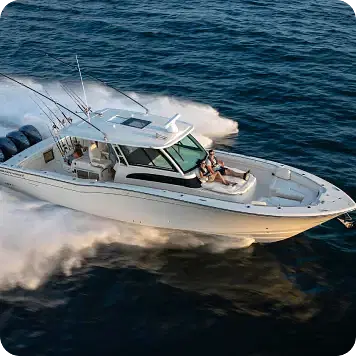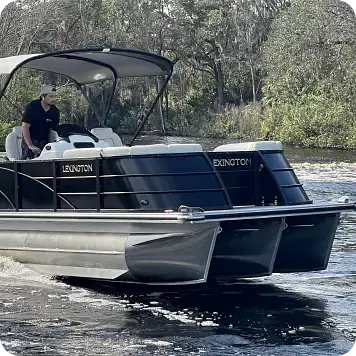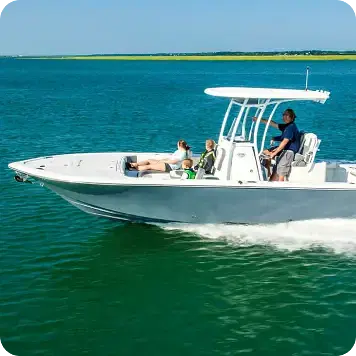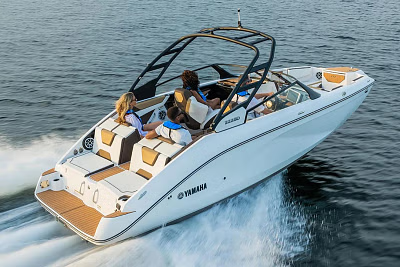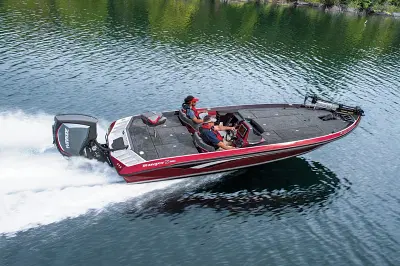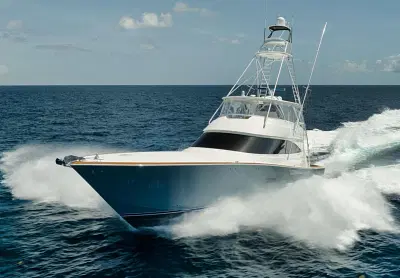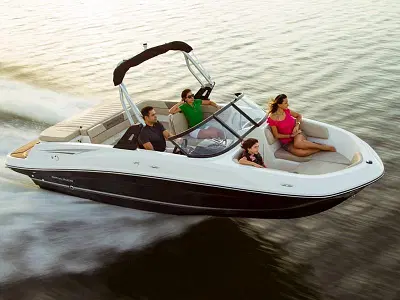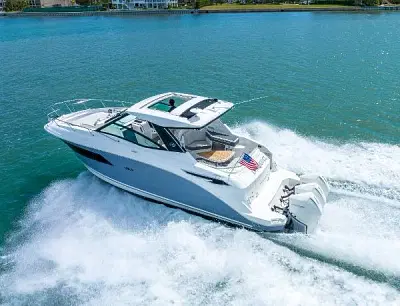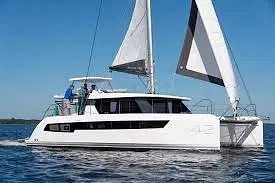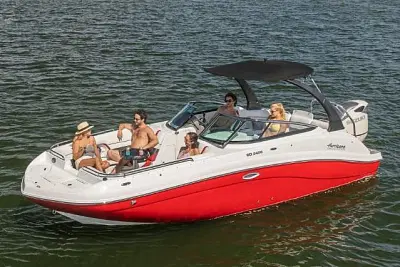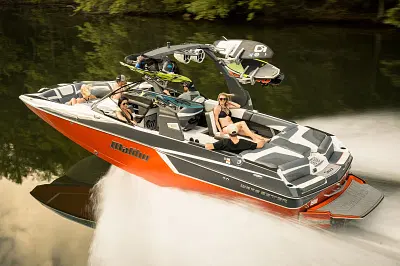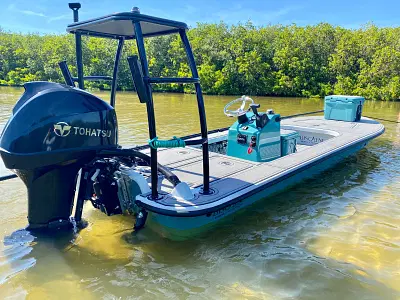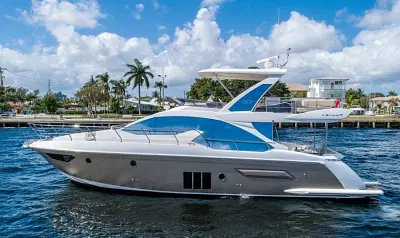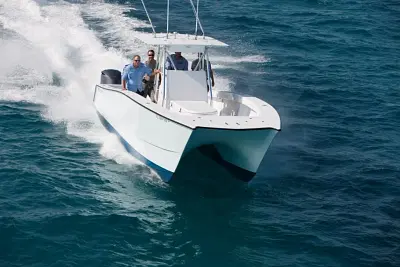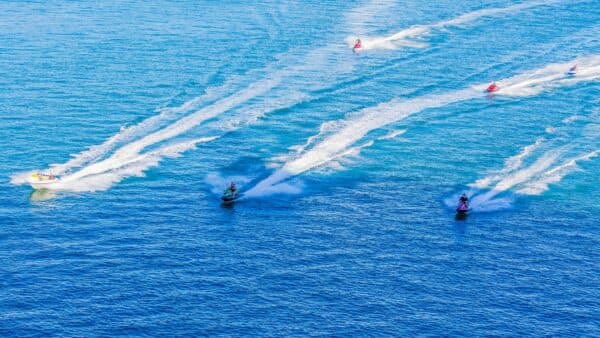Wyoming is known for its big sky and wide open spaces. First named mecheweamiing by the Native American tribe, the Delaware, it means "at the big plains." The features of the Rocky Mountains serve as a backdrop, with Big Horn Mountain and Casper Mountain looming in the distance. Wyoming is also home to a sizable portion of Yellowstone National Park.
Freshwater Boating The Cowboy State is a freshwater heaven. The Rocky Mountain Range sets the stage for six major lakes, with over 15 large bodies of water. Small human-power skiffs dedicated to quiet fishing, kayaks for exploring, or houseboats and larger lake escapes will all find a home on Wyoming waters.
Alcova Reservoir is a great escape with nearly 2,500 acres of blue water surrounded by rugged mountains. Canoes are best for coves and inlets, while the size of the Reservoir easily accommodates larger power boats. The Buffalo Bill Reservoir is part of the Yellowstone ecosystem and offers boaters a unique experience. Part of Wyoming's Grand Teton National Park, Jackson Lake is the state's largest alpine lake. Its breathtaking views and abundant wildlife are worth a day on the water. Nearby, in the upper northwest corner of Wyoming, is Yellowstone Lake, 136 acres of exquisite boating.
Wyoming's freshwater system also means fishing. The state is home to over 80 fish species, and there are hundreds of places to cast on lakes, streams, and rivers. Small craft angles enjoy the pursuit of walleye, numerous trout species, and the more challenging bass.
Boating Details There are a few rules and do's and don'ts when boating in Wyoming. All motorized boats must be registered, and all large craft boaters must have a license - logical enough. Additionally, for safety, state law requires all watercraft, motorized and human-powered, to be inspected annually before disembarking.






